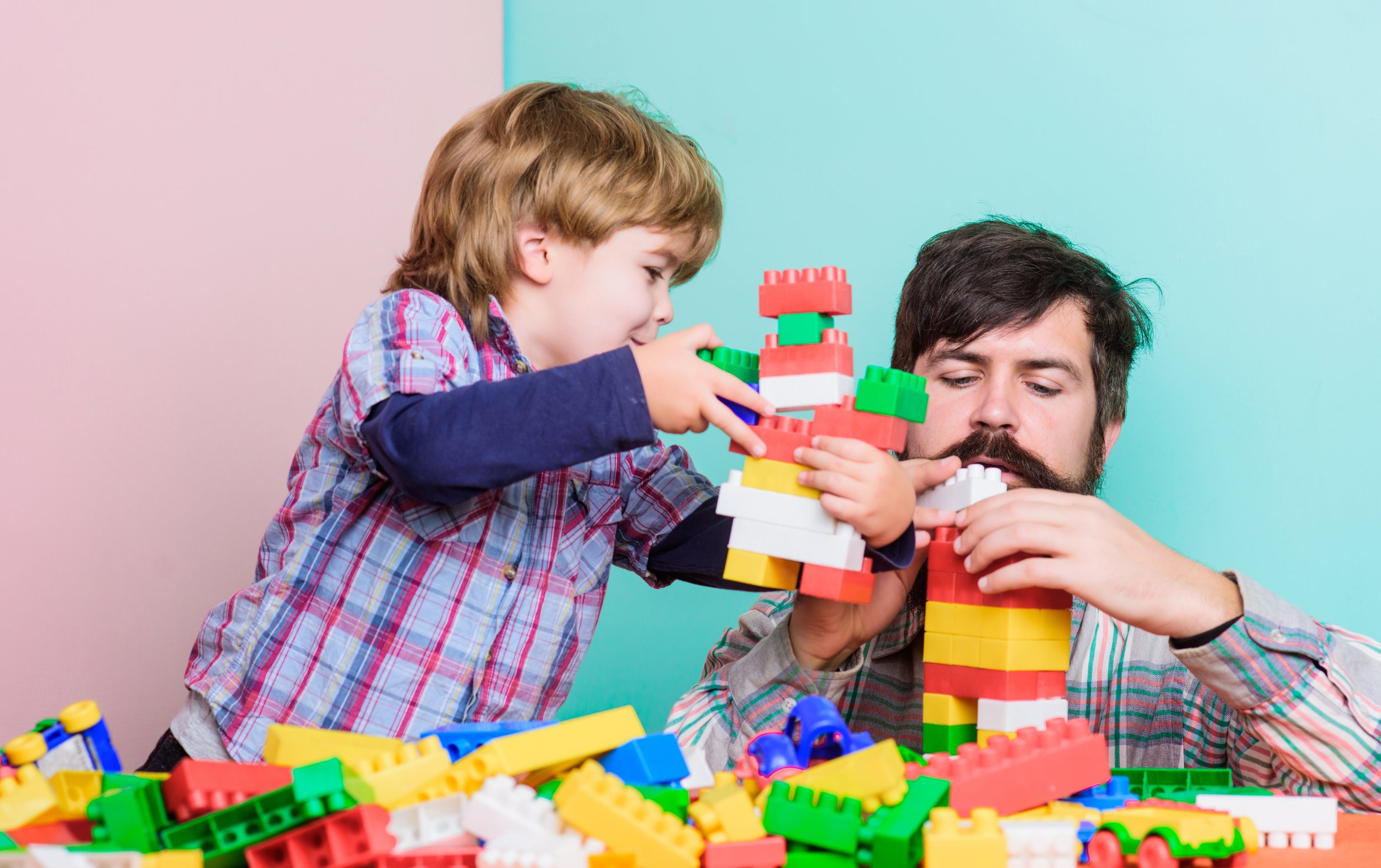Everyone knows what “play” is -- right? It’s peek-a-boo with baby…hide-and-seek with toddlers…tag among school-agers…a teenage pick-up game of basketball…or your family’s favorite board game on game night.
All true. Yet from a developmental standpoint, what may seem like fun of little consequence actually plays a crucial role in many aspects of child development, including social-emotional, motor, cognitive, language, self-regulation, enhanced sense of agency and executive function. Best yet, the developmental benefits of play compound as children age.
Don’t just take it from me. These claims are backed by the American Academy of Pediatrics, which published a free report on the role of play in child development that covers everything from the evolutionary importance of play and its various categories to the developmental benefits for kids and the oft-overlooked positive impact of play on parents and caregivers.
A definition of play that rings most true for me is the one attributed to Maria Montessori: “Play is the ‘work’ of the child.” Through play, kids of all ages develop their brains and bodies, discover the world and find out more about who they are.
Naturally, play looks different at different stages of development.
For little ones, play is how they first learn to interact with the world. The best kind of play for this age group is unstructured, child-directed and rule-less. That means parents can be encouraging and engaged, but hands-off when it comes to trying to “teach” kids too much. Let your child play with the shape-sorter, just don’t get overly involved in having them ‘do it right’.
With toddlers, you’ve no doubt noticed that a fair bit of their play is parallel play. It’s not uncommon to see toddlers playing side-by-side with others with similar toys, but without a lot of interaction. Such play may looksolitary, but your child is intently observing, listening to and learning from the kids around them, which is a critical precursor to collaborative play.
No matter the setting, all play for little ones is learning time. Even throwing things (if I move my arm and let the toy go it flies across the room) is an education of sorts. So as long as your kid is safe during playtime, don’t impose rules or restraints on them; that’s key.
What happens next is imitation. Pre-schoolers do what they see. They play doctor, mommy, grocery store…mimicking the real-life activities they witness during their days. The importance of this type of practice-and-rehearsal play is that it gives youngsters ample opportunity for social interaction with playmates, siblings, and/or parents.
For late pre-schoolers and early primary school, play becomes a critical component in language development, the ability to focus and to be empathic toward others. Play is a supremely creative pursuit at this age, with kids creating games with imaginary characters and fantastical landscapes, complete with their own set of rules. Parents are wise to support their kids’ creativity by providing parameters or props or simple ideas to prompt their imagination. For example, suggest they pretend the living room is full of hot lava, then stand back and watch what happens.
Again, resist the urge to pitch in with too many suggestions. Best not to squash your kids’ creativity -- even if it doesn’t mesh with your sensibilities. I know a mom whose 6-year-old who, after completing her chore of clearing the dinner table, turned it into a fort. To be honest, if it had been me, I likely would have been frustrated and asked my child to clean it up. However, this thoughtful mom exclaimed, “Honey - that’s so cool! Let’s leave it like that until tomorrow and then we can play in it when you come home from school!” That brilliant response, allowed her daughter to truly be seen and recognized in that moment AND didn't derail bedtime preparations. The next afternoon spent under the table in the child's invented world demonstrates the power of play.
If you happen to be one of those families like mine where play is part of the fabric of family life, you’ll discover that over play, conversation with even recalcitrant teens is easier because of the more relaxed environment. Play is fun and lighthearted, and in that environment it won’t feel like an inquisition when you ask how school went. Play takes the pressure off teens, too. As adults, parents can forget just how onerous the pressures of adolescence can be; so, relish the chance for your teen to feel like a kid again.
Family play is a relief from the rigors of life for everyone -- parents included. It’s so easy for us to get on our proverbial treadmills and go about the business of crossing things off that ever-growing to-do list. You may even discover, as many businesses have, that if you want to be more effective and productive, parents would be wise to tap into the surprising power of play themselves.
It’s impossible to overstress how “powerful” play is as child development tool. Playing around is not something kids just do. Far from it. When they’re little, it’s their entire interaction with the world. As they age, it grounds their motor development and teaches them social constructs. Further on, play helps them foster imagination, build relationships and offers a break and release from the cares of the world…something parents and kids alike benefit from.
From my point of view, play is as essential as nutrition, sleep and sunlight. In other words, it’s essential to life. So get to it!


